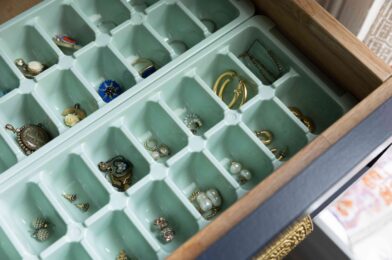Introduction
As technology continues to shape the world around us, mobile gaming has become a popular form of entertainment, even for the youngest generation. With millions of Android apps and games available, it can feel like a daunting task to choose which ones are best for your kids. The best Android games for kids don’t just entertain—they engage, educate, and foster creativity. But what exactly makes these games truly entertaining for children?
In this guide, we’ll explore what makes the best Android games for kids so captivating, and how you can pick games that offer fun, safety, learning, and physical activity. From boosting cognitive abilities to providing opportunities for parent-child bonding, the best games do more than just kill time—they enrich your child’s development in exciting ways. Let’s dive in and uncover how you can keep your little ones entertained for hours while ensuring they’re playing with purpose.
What Makes the Best Android Games for Kids Truly Entertaining?
When it comes to best Android games for kids, the primary goal is to keep children engaged, entertained, and, most importantly, safe. But what makes a game genuinely fun and captivating for kids?
First and foremost, the best Android games for kids are intuitive and easy to understand. Games with simple controls and clear objectives allow children to jump right into the action, without feeling frustrated or overwhelmed. Whether it’s a puzzle, a race, or an adventure game, the simplicity of the interface plays a major role in keeping kids hooked.
Another important aspect is the game’s visual appeal. Bright colors, charming characters, and playful animations are proven to attract kids. The visual design needs to be eye-catching and engaging, yet not overly complicated, as too much complexity can lead to confusion or distraction.
Equally important are the rewards and progression systems. Kids love games that offer incentives for their efforts—whether it’s unlocking new levels, gaining special items, or receiving praise for completing challenges. These systems keep children motivated, offering a sense of accomplishment while they play. The best Android games for kids skillfully incorporate a steady progression of difficulty, keeping kids entertained without frustrating them.
Lastly, a sense of adventure or discovery is essential. Whether the game is about embarking on a treasure hunt, building a magical world, or exploring new landscapes, children are drawn to games that spark their curiosity and allow them to discover new things. Games that foster a sense of exploration, wonder, and achievement make the best Android games for kids even more enjoyable.
Educational Adventures: How the Best Android Games for Kids Can Boost Learning
One of the biggest reasons to opt for the best Android games for kids is their potential for learning. The line between entertainment and education is blurring in the world of mobile games, and there are now countless games that blend fun with valuable lessons.
The best Android games for kids can be an excellent tool for teaching essential skills in an interactive, engaging way. For instance, math games like Prodigy Math Game offer challenges that strengthen addition, subtraction, multiplication, and even algebra skills while keeping the gameplay exciting. Similarly, games like Endless Alphabet teach vocabulary and letter recognition through colorful animations, which captivate kids while enhancing their reading abilities.
Beyond traditional subjects like math and reading, best Android games for kids also teach critical life skills such as problem-solving and strategic thinking. Puzzle games, like Toca Builders or Monument Valley, challenge kids to think critically and explore new ways to solve complex puzzles. These games build cognitive skills, improve memory, and promote logical thinking, all while keeping kids entertained.
Additionally, games that focus on social-emotional learning, such as Pepi Hospital or Budge World, allow children to explore concepts like empathy, responsibility, and sharing. These best Android games for kids go beyond basic academic learning, helping children develop emotional intelligence and social skills.
Ultimately, when games are educational yet fun, they keep kids not only entertained but also intellectually engaged. The best Android games for kids foster both cognitive and emotional growth, ensuring children develop in a well-rounded, enjoyable way.
The Best Android Games for Kids: Perfect Picks for Creative Minds
Creativity is one of the most important aspects of a child’s development, and the best Android games for kids can foster this essential skill. Creativity allows children to think outside the box, solve problems, and express themselves in unique ways.
Games like Minecraft and Lego Legacy are ideal for sparking creativity. They allow children to build and shape entire worlds, either by constructing imaginative structures in Minecraft or creating custom characters and environments in Lego Legacy. These games encourage kids to explore their imagination while developing critical thinking and spatial awareness.
Drawing apps such as Doodle Buddy or Art of Glow also provide great opportunities for children to express themselves visually. These games allow kids to create digital masterpieces, experimenting with colors, shapes, and design. By tapping into their inner artist, children can improve their fine motor skills and boost their self-confidence through the act of creation.
Music-based games like GarageBand also provide avenues for kids to explore their musical talents. These apps offer virtual instruments, enabling kids to compose their own tunes or remix existing ones, fostering an appreciation for music and sound.
When selecting the best Android games for kids with a creative twist, look for games that offer open-ended possibilities. These types of games encourage children to think creatively and explore different methods of self-expression, all while having fun.
Engaging and Safe: Finding the Best Android Games for Kids in a Sea of Options
With millions of Android games available, finding the right game for your child can feel overwhelming. The best Android games for kids not only need to be fun but also safe and age-appropriate. So, how can parents find games that are both engaging and secure?
First, make sure the game has parental controls or age restrictions built-in. Many of the best Android games for kids allow parents to set boundaries regarding in-app purchases, screen time, and content. These features ensure that the game remains safe and enjoyable, without any hidden dangers.
Secondly, check the game’s ratings and reviews. Look for games with positive feedback from other parents, and ensure that the content aligns with your values and standards. The best Android games for kids often have features that make them both fun and educational, and reviews can highlight these aspects.
Another key factor in finding the right game is ensuring that the game doesn’t contain inappropriate ads or content. The best Android games for kids will have ad-free experiences or child-friendly advertisements that don’t lead to harmful content or excessive spending.
Lastly, the best Android games for kids should encourage physical activity or outdoor play, particularly for younger children. Games that offer opportunities for exploration or encourage kids to step outside and get moving can balance screen time with healthy activity.
From Alphabet to Math: The Best Android Games for Kids That Foster Early Learning
The early years of a child’s life are crucial for developing foundational skills in language, math, and motor development. Fortunately, the best Android games for kids cater to these needs, offering engaging ways to foster learning from an early age.
For younger children, apps like Endless Alphabet and Sago Mini are perfect for introducing letters, numbers, and basic concepts. These games feature interactive learning elements that teach children the alphabet, phonics, counting, and even simple words in an engaging, visual format. Through colorful animations and cute characters, kids will start recognizing words and numbers, setting the foundation for future learning.
For math skills, Moose Math and Monkey Math School Sunshine provide interactive math exercises and games, helping children grasp basic math concepts like addition, subtraction, and shapes. By turning learning into a fun game, these apps ensure that children enjoy their math lessons while building a strong numerical foundation.
The best Android games for kids in the early learning category should provide a mix of visual, auditory, and tactile learning experiences. Interactive games where kids can touch, drag, and drop objects, or listen to sounds that reinforce learning, create a multisensory experience that enhances memory retention.
Interactive Playtime: Why the Best Android Games for Kids Are Great for Parent-Child Bonding
The best Android games for kids offer more than just solo entertainment—they can also provide opportunities for parent-child bonding. Games that allow for shared play are great for bringing families together and creating meaningful experiences.
Games like Toca Boca and LEGO Tower offer collaborative play experiences, where both the child and parent can engage in activities together. These types of games allow parents to be involved in their child’s gaming world, participating in imaginative play, solving puzzles, or completing challenges side by side.
For families with older children, best Android games for kids that support multiplayer modes can also be a great way to connect. Games like Mario Kart Tour or Among Us offer multiplayer experiences where parents and kids can team up to tackle challenges or compete in friendly matches.
Not only do these games provide fun, but they also encourage cooperation, communication, and shared goals. The experience of working together or cheering each other on builds emotional connections and strengthens the family bond.
The Best Android Games for Kids That Promote Physical Activity and Movement
In an era where screen time is often associated with sedentary behavior, the best Android games for kids can also promote physical activity. Active games are designed to get kids moving, whether it’s dancing, jumping, or running in place.
Games like Just Dance Now and Zombies, Run! encourage kids to move their bodies, follow dance routines, or participate in virtual fitness challenges. These games combine the fun of gaming with the physical activity needed to stay healthy and energized.
Active gaming not only helps kids burn off energy but also promotes the development of motor skills and hand-eye coordination. Additionally, these games make physical activity feel like a game, ensuring that kids enjoy getting active.
A Safe Gaming Experience: How to Choose the Best Android Games for Kids
When it comes to choosing the best Android games for kids, safety should always be a top priority. Look for games that offer age-appropriate content, with no in-app purchases, ads, or inappropriate material. Many of the best Android games for kids come with built-in parental controls, allowing you to restrict certain features and monitor your child’s gaming time.
Additionally, choose games that don’t contain violent or disturbing content. Look for games that feature positive messages, friendly characters, and calm, soothing music—games that promote emotional well-being and safe social interactions.
Cooperative Fun: The Best Android Games for Kids to Play With Friends
Playing games with friends is an essential part of a child’s development. The best Android games for kids foster cooperation and teamwork through multiplayer features. Games like Minecraft and Roblox offer vast worlds where kids can collaborate with friends to complete tasks, build structures, or engage in challenges.
Multiplayer games not only help kids practice social skills but also teach valuable lessons in communication, problem-solving, and sharing. These games provide opportunities for friends to connect, strategize, and achieve goals together.
How the Best Android Games for Kids Can Keep Your Little One Engaged Without Overdoing It
One of the best aspects of the best Android games for kids is their ability to engage children for extended periods without causing overstimulation or screen addiction. Games that offer balance—by limiting playtime and encouraging breaks—help children stay engaged without feeling overwhelmed.
Parents can look for games that feature pause options, timer settings, or reward-based systems to keep their kids on track. These features promote healthy screen time habits while ensuring that children enjoy their gaming experience responsibly.
By choosing the best Android games for kids, parents can ensure their little ones stay entertained, educated, and engaged—without overdoing it.
Conclusion
Choosing the best Android games for kids requires careful consideration of entertainment value, educational benefits, safety, and balance. The best Android games for kids foster creativity, promote physical activity, enhance cognitive skills, and encourage healthy habits—all while keeping kids engaged and entertained. Whether you’re looking for fun, learning, or physical movement, there’s a perfect game out there for your child. Happy gaming!
:max_bytes(150000):strip_icc():format(jpeg)/smart-closet-storage-ideas-2648418-step-14-855748aa2515496aa62308d8f03e963e.jpg)


:max_bytes(150000):strip_icc():format(jpeg)/GettyImages-1222652385-3fb48d1901874564a97025879b9953c0.jpg)

:max_bytes(150000):strip_icc():format(jpeg)/0P9A84661-e644e41b1d2040c8932592a490008631.jpg)



:max_bytes(150000):strip_icc():format(jpeg)/SPR-How-to-Organize-a-Jewelry-Drawer-01-e5293e622e3a4ec3955fa1fc1f1698e6.jpg)


:max_bytes(150000):strip_icc():format(jpeg)/GettyImages-154944717-33d244b6c9db4895946aaadedfdebdd0.jpg)


